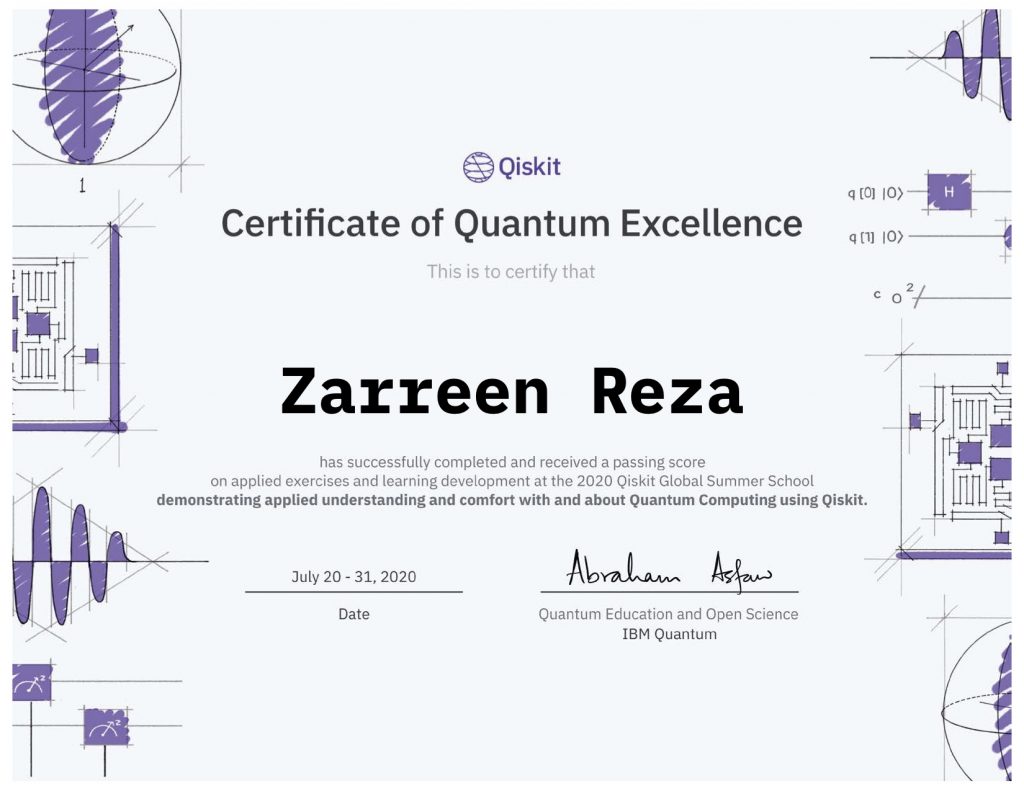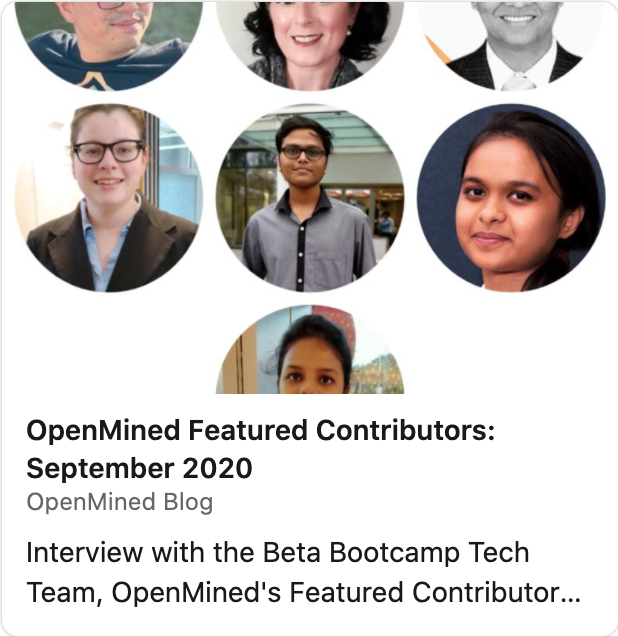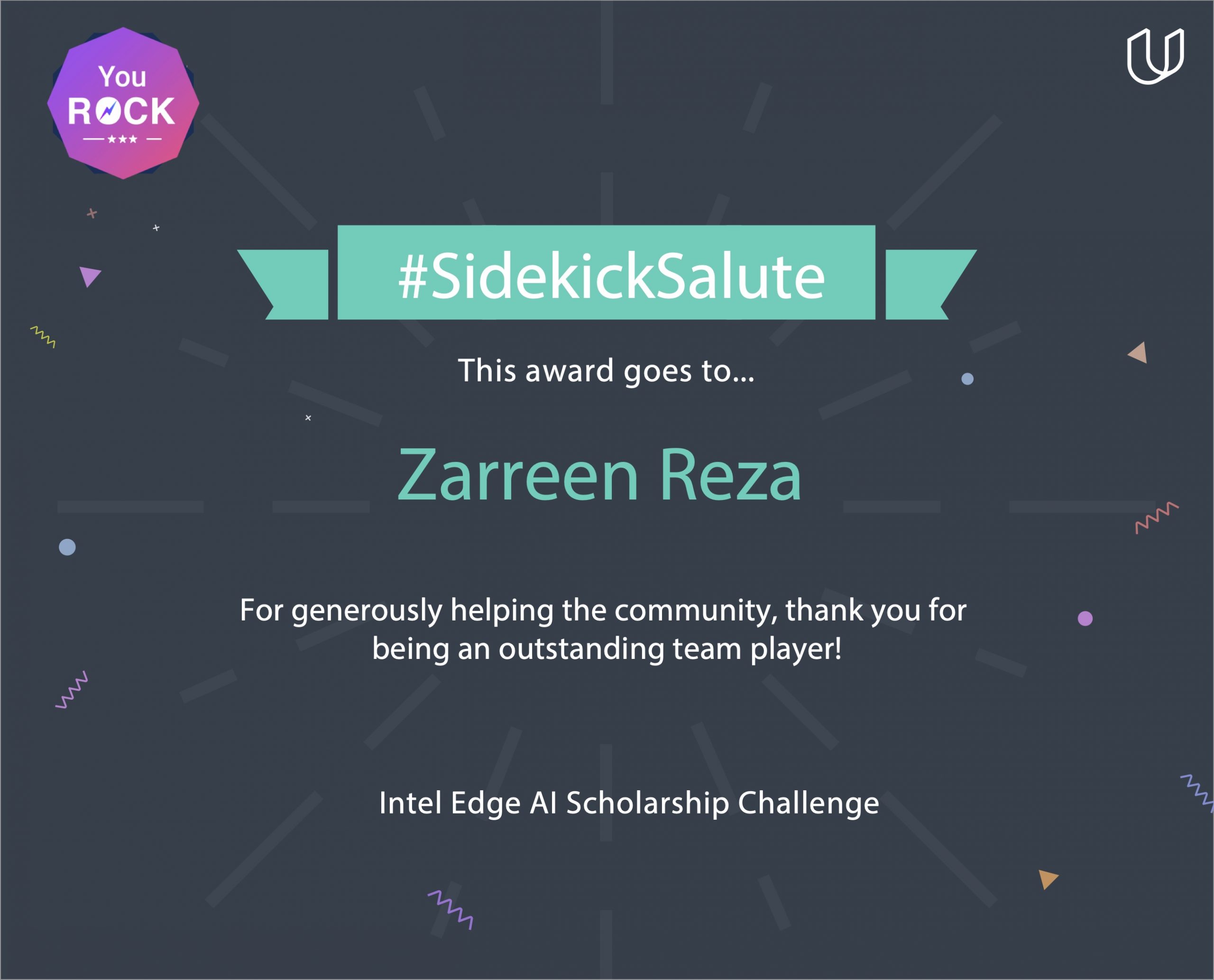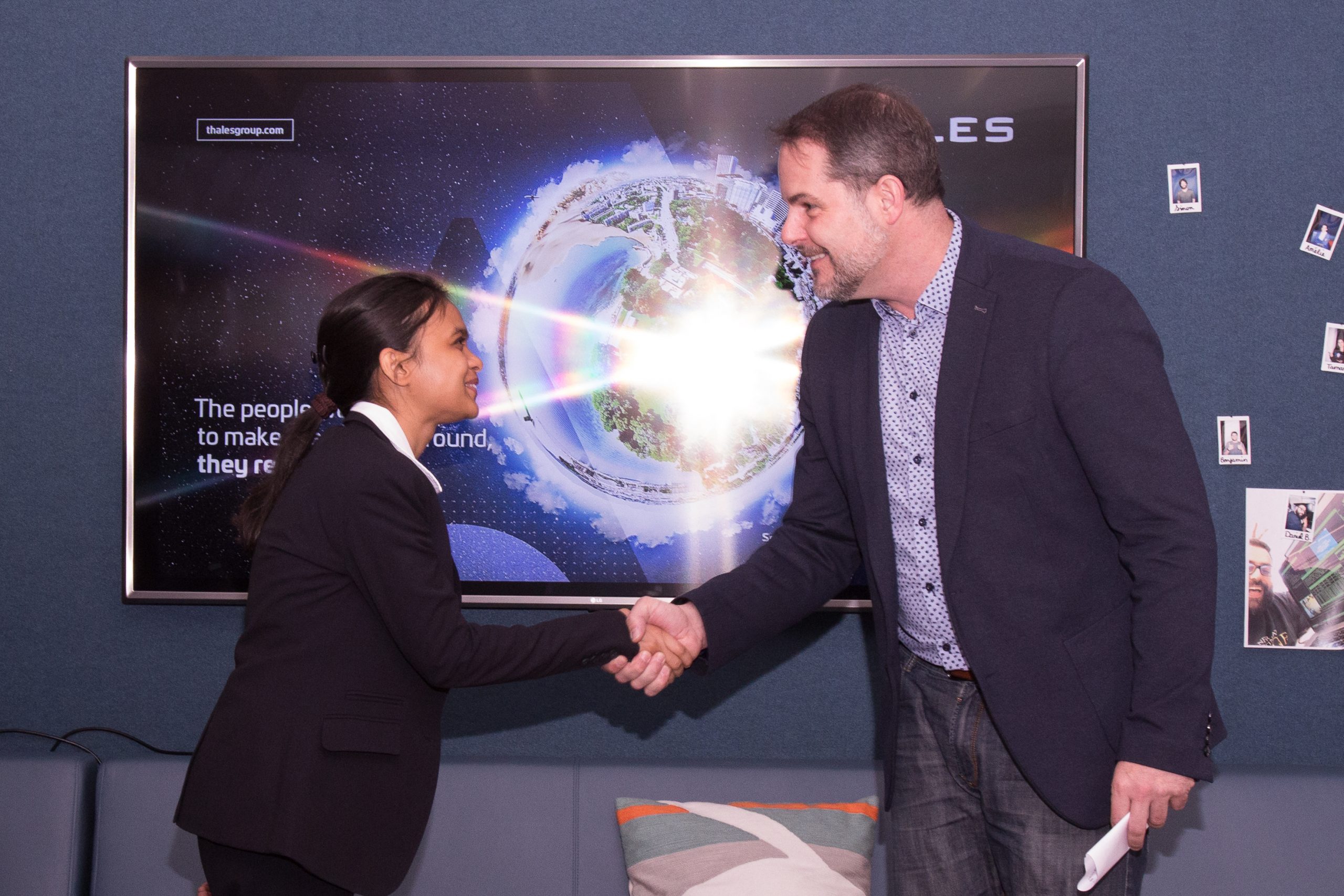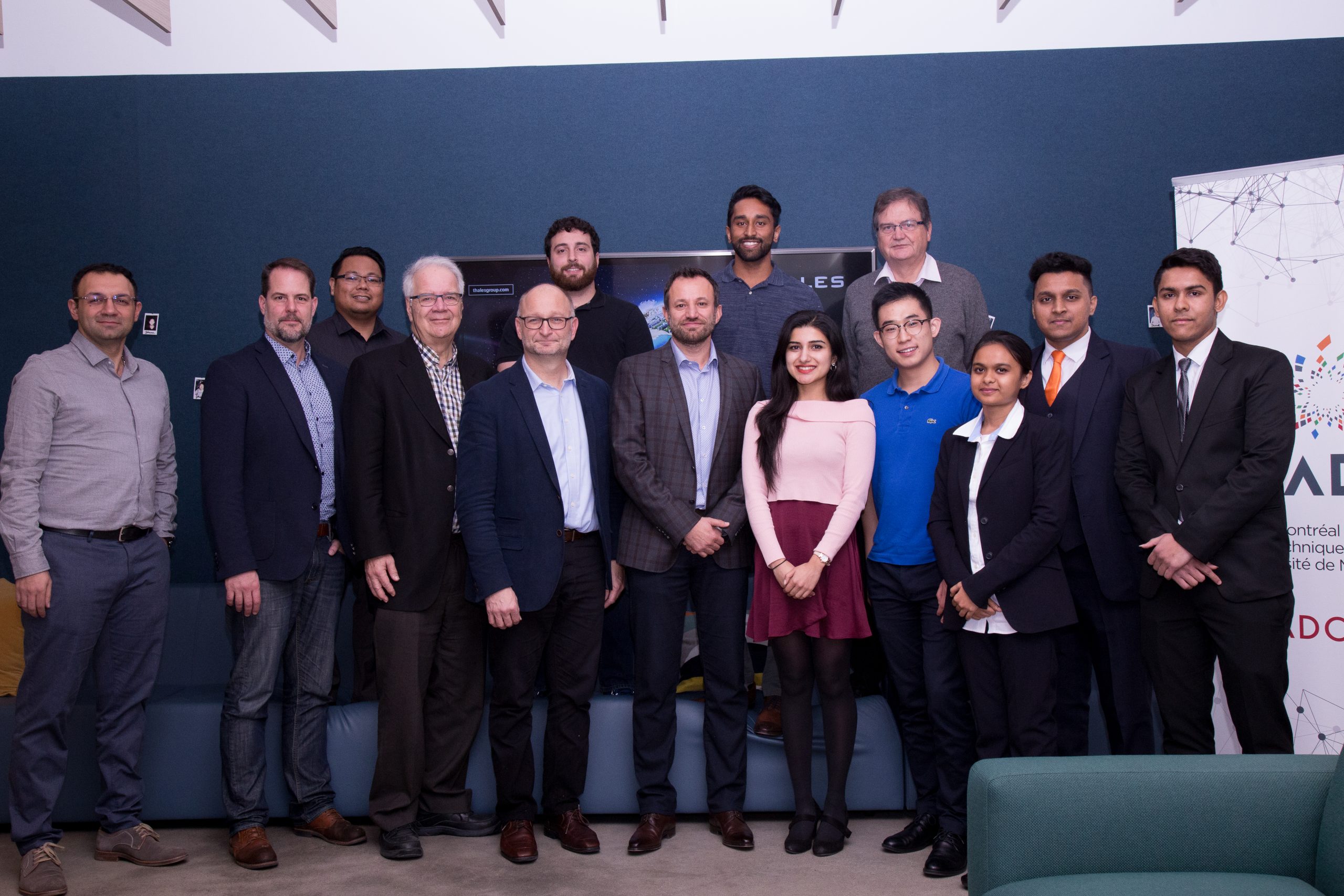Participating in the Qiskit Global Summer School 2020 was a great experience! We were taught in-depth theoretical concepts including Quantum Error Correction, Quantum Chemistry, Quantum Machine learning and so much more. We also got hands-on experience by coding for labs and running them in actual quantum computers in cloud! In the final project we had to design, implement, and simulate a VQE algorithm for calculating the ground state energy of the LiH molecule. Check my team’s solution here.
Listen to my talk on End to end ML Orchestration for Private Data on Women in Data Science (WiDS) Vancouver Conference 2022. Privacy-preserving AI is still quite new, but soon it will become inevitable. Although, there are advancement happening in private data science on research level, we still have a long way to go for adapting them on enterprise scale. In this talk at first I discussed about how AI models can be trained on data we don’t have access to. Then I talked about the current practices in companies to adapt these privacy-enhancing technologies in their products.
Finally I touch based on existing open-source frameworks for end-to-end privacy preserving ML orchestration for enterprise AI. Whether you are a data scientist, ML engineer or company executive, these knowledge will put you one step ahead from your peers.
Listen to my talk on Privacy-Preserving AI (PPAI) on Women Who Code – CONNECT Reimagine Global Conference. The title of the talk is Privacy-Preserving AI – Perform data science on data you cannot see. Data is the new electricity. However, data is not always easy to access. Let’s learn to train AI models on data we don’t have access to. I started this talk by stating why data privacy is important to begin with, then explained some cutting-edge PPAI tools and ended with what an end-to-end PPAI pipeline looks like referring to a recent paper in Nature by Kaissis et. al. (2021).
This conference is organised by OpenMined community covering all aspects of privacy-related technology research, deployments and issues. Speakers include some of the leading researchers, engineers, philosophers and visionaries from the data privacy and security field from world’s top institutes. Me, along with my Differential Privacy research team in OpenMined have presented our project on private deep learning on medical data. More details of the project are available in the conference presentation here.
I was featured as one of the seven contributors of OpenMined Beta Bootcamp’s Tech Team. In this bootcamp we trained 15 selected students in deep learning and federated learning with hands-on coding using PySyft. I hosted one of the sessions and worked as a tech teaching assistant in the rests. Here’s a snippet from my interview.
Please recommend one interesting book, podcast or resource to the OpenMined community.
“The Book of Why: The New Science of Cause and Effect by Judea Pearl and Dana Mackenzie. This book focuses on how the current AI models lack the causal reasoning ability and why it is something crucial to have in order to achieve AGI. Whether you are overwhelmed by the ongoing AI hype or scared of an upcoming AI apocalypse, this book will provide you a whole new perspective and necessary reality-check. If you are into podcasts, I would highly recommend checking out Naval Ravikant podcasts, especially the one on The Knowledge Project channel and one with Joe Rogan. His podcasts cover a wide range of topics from science, technology, past, future and life.”
Read my full interview here!
Out of 10,000+ students, I have been awarded with this award after being elected by the classmates as a recognition of outstanding community contribution. I never expected anything in return but this kind of recognition coming from peers is always motivating and refreshing. All in all it was a great journey as an Intel Edge AI Scholar hosted by Udacity.
My team was the 3rd winner in Thales Canada’s Student Innovation Championship 2018, which was a national AI competition participated by 52 undergrad and post-secondary graduate student teams from top universities. 8 finalist teams presented to a panel of judges comprised of industry experts at Thales’ Centre of Research and Technology for AI eXpertise (cortAIx) and the home of Thales’ North American Digital Factory in the heart of Montreal’s AI hub to win $20,000 of grand prize.
Our winning solution presented an end-to-end learning model for identifying misinformation present in the web. The model is capable of mining all opinions available on the web on a certain topic along with relevant evidences so that users can decide the authenticity of each opinion before taking them into account. The user is presented with visual statistics of a list of opinions with supporting and contradicting evidence and a credibility score that they can use to decide if an opinion deserves sufficient authenticity.
This is the webinar I hosted during a Study Jam for the students of Intel Edge AI Scholarship. In this webinar I presented different ways and directions to follow for applying machine learning in speech and audio data.
3-Minute Thesis is a prestigious and extremely challenging competition held all over the world where graduate students present their Master’s and PhD thesis to a room full of non-specialist audience in under 3 minutes with 1 static slide! I participated in Annual 3MT Competition 2019 organised by the University of Windsor. I was one of the top 5 presenters in the competition. I shared my experience in this blog.
